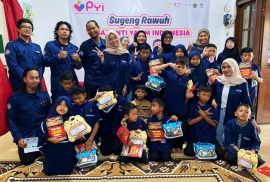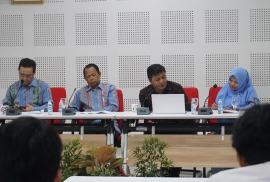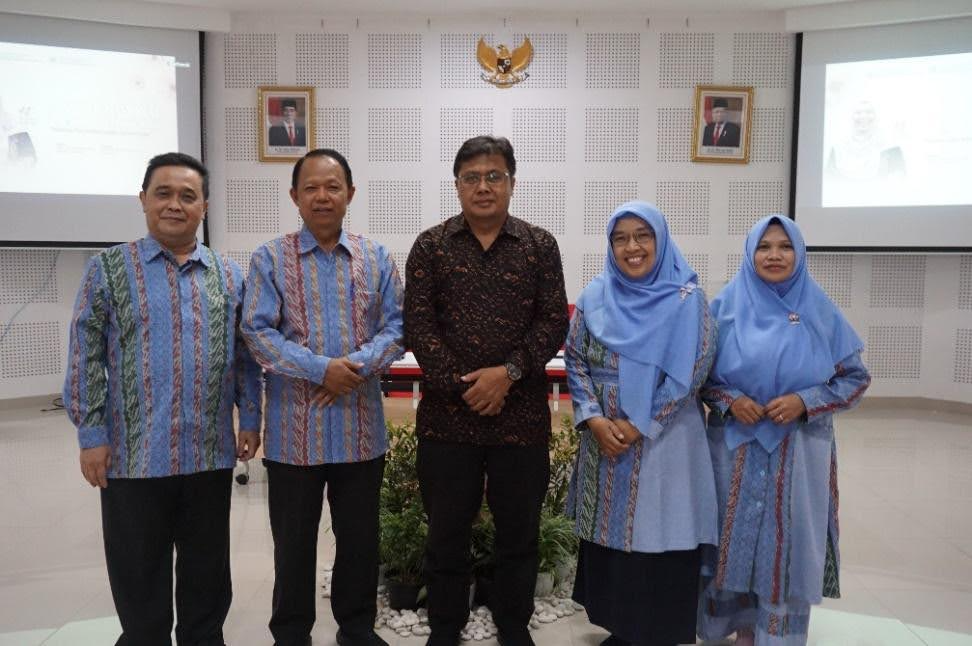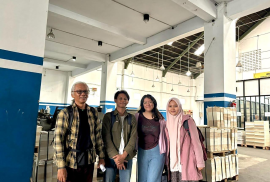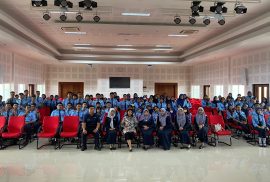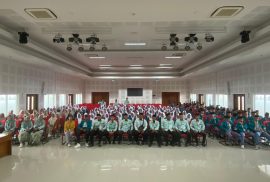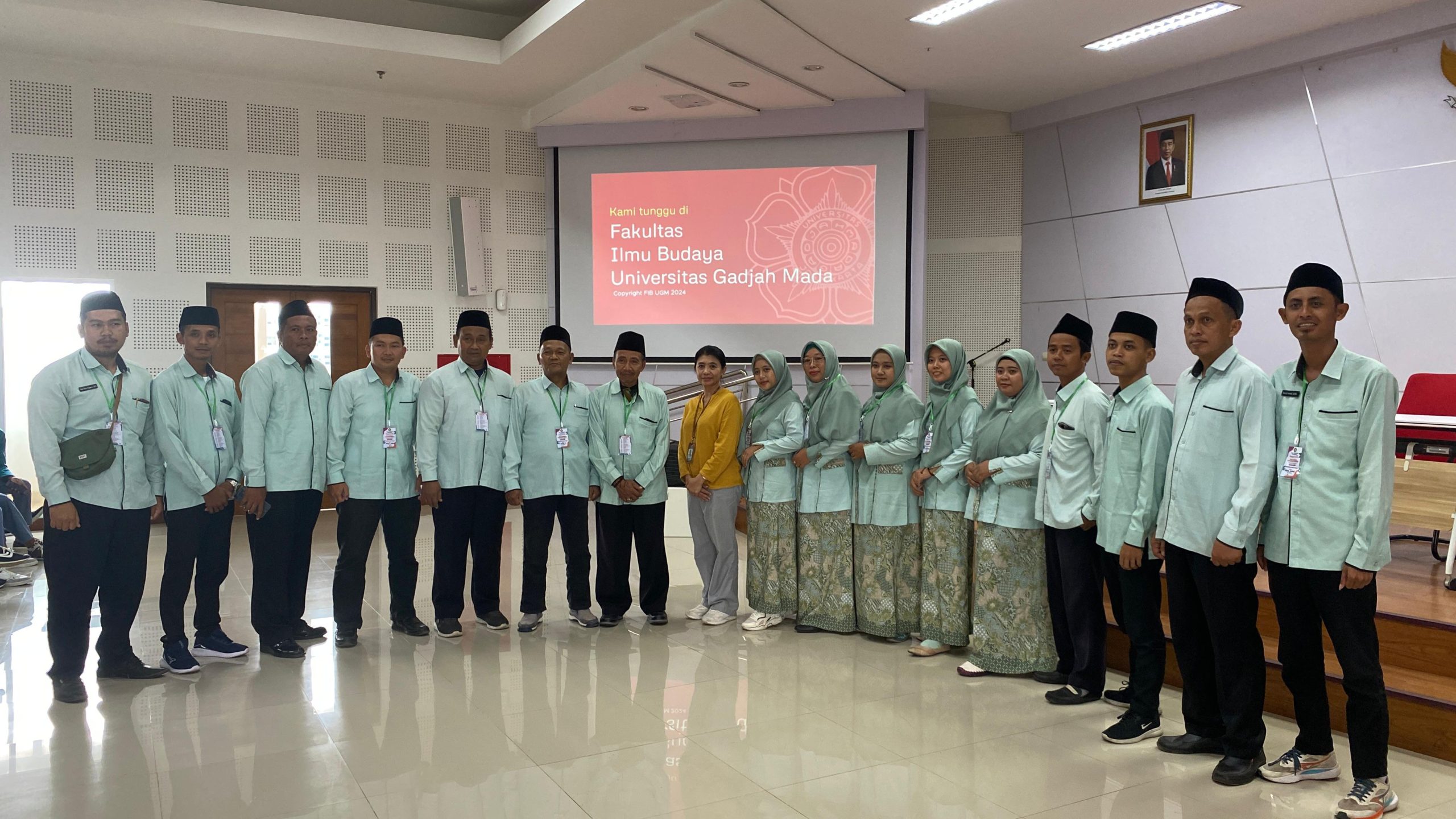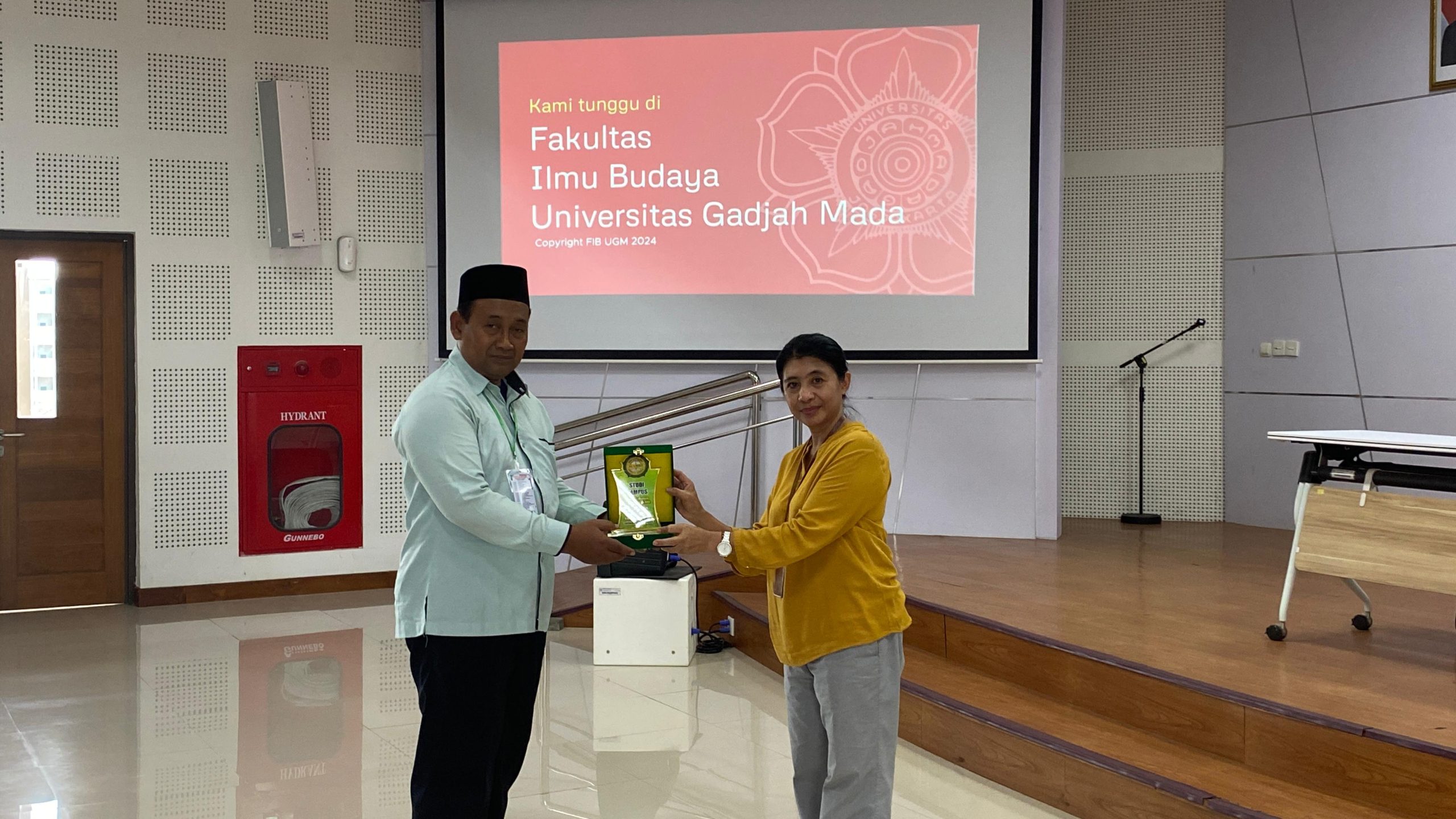Kamastawa Teaching and Sharing is Back: Sharing Laughter, Knowledge, and Sustenance at PYI Orphanage
As a form of community service, the Javanese Language, Literature, and Culture Student Association (Kamastawa) held another “Kamastawa Teaching and Sharing” event on Sunday, October 22, 2024. This event is the result of collaboration between the social and community division (sosmas) and the scientific division, with the aim of having a positive impact on society, especially for children at the Wirobrajan branch of the PYI Yatim and Zakat Orphanage, Yogyakarta.
There were 16 children from grade 1 elementary to 1 junior high school involved in the event. The event opened at 09.00 AM WIB with an opening session and introductions. During the event, students and children had the opportunity to play together, creating a cheerful atmosphere with jokes and laughter. This togetherness became an important foundation in building intimacy between students and participants.

Opening session and introductions
After the introductory session and games, the event continued with teaching and learning activities. Participants were divided into three groups according to educational level: group 1 for grades 1-2 elementary school, group 2 for grades 3-4 elementary school, and group 3 for grades 5 elementary school to 1 junior high school. Each group received materials tailored to their age and level of understanding, ranging from daily Javanese conversation, Javanese script writing, Javanese assignment consultation, and so on. Various teaching methods were used by the students to make learning fun and easy for the children to understand.

Teaching-learning session
After the learning session was over, it was time for ice breaking, where the participants were invited to sing together the song aja ndomblong aja and follow the guessing game with prizes. This session succeeded in sparking the children to be active in an exciting way.

The children’s enthusiasm could be felt from the beginning to the end of the activity, especially during the distribution of small gifts as an appreciation for the participants’ activeness. In addition, Kamastawa also provided Pepak Basa Jawa books and reading books as a form of support for the participants future educational development. It is hoped that participants can easily access knowledge and enrich their insights, including those related to knowledge and preservation of Javanese culture.
The gifts given may be considered simple. However, prayers, hopes, and sincere intentions to share will live on and become the foundation in the implementation of the ‘Kamastawa teach and share’ program now and in the future.
Author : Haryo Untoro

